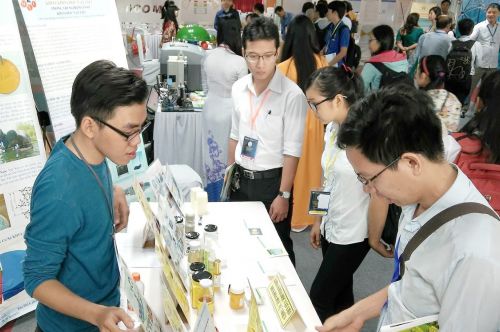Difficulties in raising capital despite increased interest rates

For example, the interest rates have been adjusted from 0.2 to 0.3 percent per year at the Vietnam Bank for Agriculture and Rural Development (Agribank), the Bank for Agriculture and Rural Development (VBARD) and the Bank for Foreign Trade of Vietnam.
Other joint stock commercial banks have also increased their interest rate from 0.2 to 0.4 percent per year including the Asia Commercial Bank (ACB), Techcombank, the Export Import Commercial Joint-Stock Bank (Eximbank), the Military Bank (MB), the Vietnam International Bank (VIB), Sacombank (SCB), Dong A Bank, Viet A and Phuong Nam. At the same time, the interest rate for the USD has also increased by 0.2-0.4 percent per year, by 0.3-0.4 percent for all terms in Vietcombank, by 0.2 percent for 12-month terms in Agribank and by 0.2-0.4 percent in other joint stock commercial banks.
Although the interest rates have been adjusted, it is difficult for banks to raise capital. According to Governor of the State Bank of Vietnam Nguyen Van Giau, capital growth in the second quarter stayed at 10.65 percent and dropped to 4.45 percent in the third quarter.
The amount of mobilized capital continued to plummet to a low level of 1.6 percent in the first six weeks of September and early October while the demand for capital investment in socio-economic development projects has increased following signs of economic recovery.
The SBV has predicted that there would be difficulties in mobilising capital, but other banks must keep in line with market trends and comply with the regulations on safety.
According to bank managers, the bottom line is that interest rates remained unchanged. So, it is difficult for banks to increase their interest rates to raise capital as short-term loans and free loans always gain the upper hand over long-term loans. Therefore, commercial banks are unable to introduce any initiative when providing long-term loans and other banking services.


